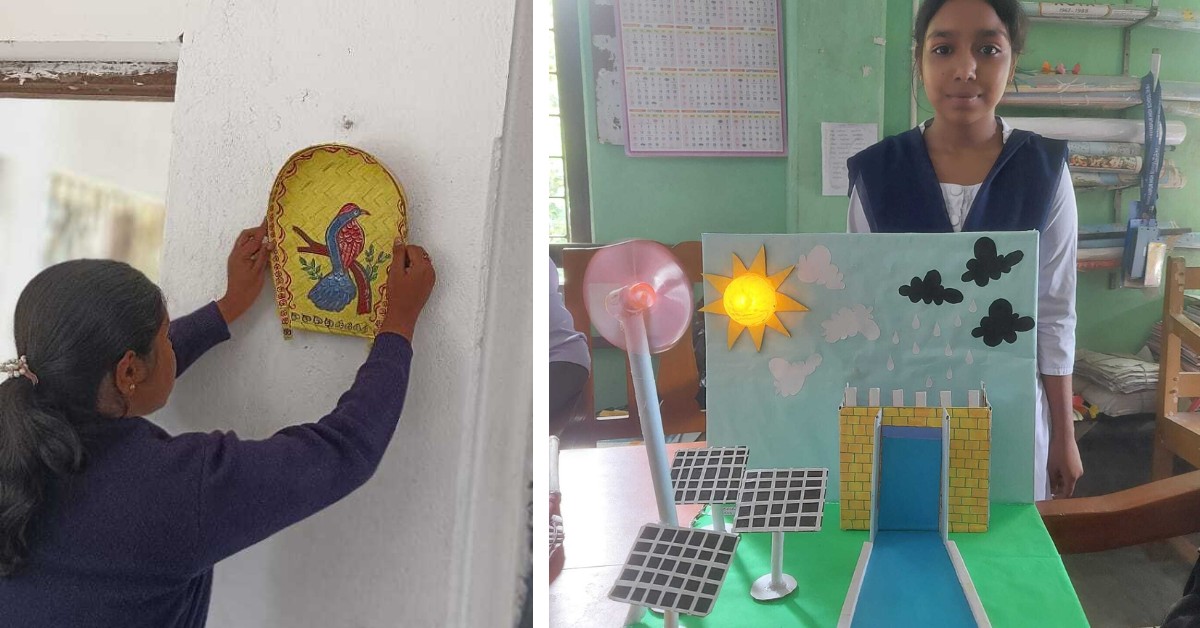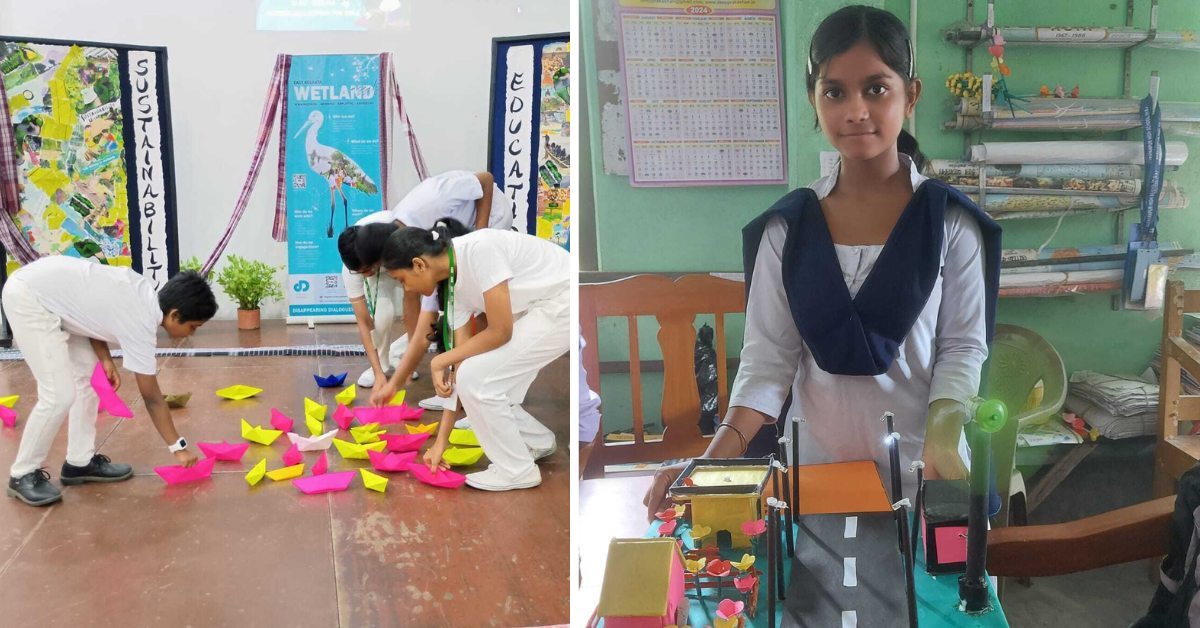At Narayanpur Excessive College in West Bengal’s Bhangar area, surrounded by the delicate great thing about the East Kolkata wetlands, schooling has taken a brand new flip. As soon as tethered to rote studying and examination preparation, the college has been reshaped right into a dwelling instance of sustainable follow. Beneath the management of Avijit Dasgupta, the scholars have gone past school rooms and textbooks to interact with urgent environmental points, particularly waste. As we speak, they’re turning on a regular basis garbage into helpful and inventive creations, proving that studying might be each purposeful and hands-on.
At Narayanpur, waste is just not handled as a nuisance; it’s a useful resource. From pottery made utilizing discarded supplies to marketable merchandise crafted from what would in any other case be garbage, college students are studying how creativity can flip trash into treasure. These tasks assist them perceive sustainability not simply as an idea, however as a talent.
What others can be taught: Combine artistic reuse into the curriculum, let college students work with on a regular basis waste to make helpful objects and paintings. It builds environmental consciousness, design pondering, and self-confidence.
Commercial
2. Use sensible workshops to construct real-world expertise
The varsity companions with organisations like Disappearing Dialogues to run experiential workshops on water conservation, biodiversity, and waste administration. As Avijit explains to The Higher India, “We maintain waste administration workshops to equip college students with sensible expertise.” Pupils observe, measure, and redesign on a regular basis habits, from water use to recycling programs.
What others can be taught: Transfer past lectures. Native partnerships may help faculties introduce sensible sustainability schooling tailor-made to neighborhood challenges.
3. Begin with small objectives
Narayanpur got down to grow to be a plastic-free campus. Whereas not but 100% there, the college has already lowered plastic utilization by about 70 p.c. “Once I joined as a headmaster, college students have been careless with plastic. However now, they know higher,” says Avijit. College students even encourage their households to alter habits, as Class 11 scholar Anjali Das shares with The Higher India, “I’ve additionally began educating my household and associates to do the identical.”

What others can be taught: Set clear and achievable objectives like banning single-use plastic or putting in recycling bins. Let college students lead the change and contain their houses too.
4. Let college students lead and be taught from nature
From naming and cataloguing timber to studying concerning the Sundarbans and the endangered Bengal tiger, college students are connecting with the pure world round them. “I’ve seen these vegetation and animals in actual life, and now I need to present future generations how essential they’re,” Riya Ghosh tells The Higher India, one other Class 11 scholar.
What others can be taught: Encourage direct interplay with nature; even easy biodiversity mapping or faculty gardening tasks can provide college students a long-lasting reference to their surroundings.
Commercial
5. Be ready for resistance and let outcomes converse
Not everybody welcomed these adjustments at first. “Initially, the guardians weren’t very supportive once they noticed their youngsters taking part in cleansing actions,” Avijit admits. However as soon as college students started gaining confidence, expertise, and nationwide recognition, help adopted. “Textbook studying is one-dimensional,” he says, pointing to the broader life preparation this mannequin affords.

What others can be taught: Talk brazenly with mother and father. Present them how sensible tasks strengthen, and never exchange, tutorial development.
Narayanpur Excessive College’s development is a reminder that significant schooling needn’t be confined to the classroom. By connecting college students to real-world points via artistic and sensible engagement, the college has constructed a era that understands the significance of environmental duty and is actively contributing to it.

